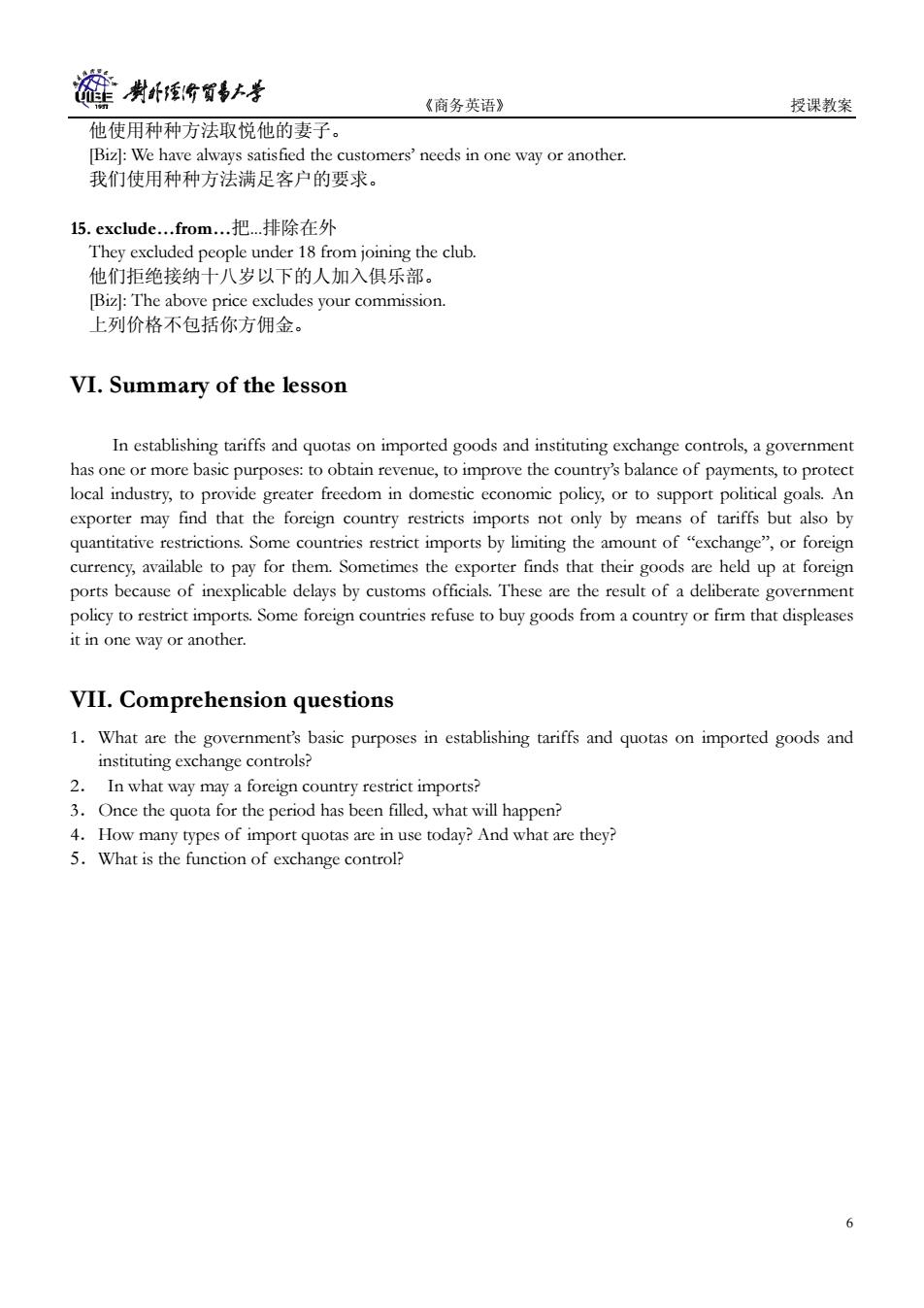正在加载图片...

莲尉的手 《商务英语》 授课教案 他使用种种方法取悦他的妻子。 Bizl:We have always satisfied the customers'needs in one way or another. 我们使用种种方法满足客户的要求。 15.exclude..from..把.排除在外 They excluded people under 18 from joining the club. 他们拒绝接纳十八岁以下的人加入俱乐部。 Biz]:The above price excludes your commission. 上列价格不包括你方佣金。 VI.Summary of the lesson In establishing tariffs and quotas on imported goods and instituting exchange controls,a government has one or more basic purposes:to obtain revenue,to improve the country's balance of payments,to protect local industry,to provide greater freedom in domestic economic policy,or to support political goals.An exporter may find that the foreign country restricts imports not only by means of tariffs but also by quantitative restrictions.Some countries restrict imports by limiting the amount of "exchange",or foreign currency,available to pay for them.Sometimes the exporter finds that their goods are held up at foreign ports because of inexplicable delays by customs officials.These are the result of a deliberate government policy to restrict imports.Some foreign countries refuse to buy goods from a country or firm that displeases it in one way or another. VII.Comprehension questions 1.What are the government's basic purposes in establishing tariffs and quotas on imported goods and instituting exchange controls? 2.In what way may a foreign country restrict imports? 3.Once the quota for the period has been filled,what will happen? 4.How many types of import quotas are in use today?And what are they? 5.What is the function of exchange control?《商务英语》 授课教案 6 他使用种种方法取悦他的妻子。 [Biz]: We have always satisfied the customers’ needs in one way or another. 我们使用种种方法满足客户的要求。 15. exclude…from…把...排除在外 They excluded people under 18 from joining the club. 他们拒绝接纳十八岁以下的人加入俱乐部。 [Biz]: The above price excludes your commission. 上列价格不包括你方佣金。 VI. Summary of the lesson In establishing tariffs and quotas on imported goods and instituting exchange controls, a government has one or more basic purposes: to obtain revenue, to improve the country’s balance of payments, to protect local industry, to provide greater freedom in domestic economic policy, or to support political goals. An exporter may find that the foreign country restricts imports not only by means of tariffs but also by quantitative restrictions. Some countries restrict imports by limiting the amount of “exchange”, or foreign currency, available to pay for them. Sometimes the exporter finds that their goods are held up at foreign ports because of inexplicable delays by customs officials. These are the result of a deliberate government policy to restrict imports. Some foreign countries refuse to buy goods from a country or firm that displeases it in one way or another. VII. Comprehension questions 1.What are the government’s basic purposes in establishing tariffs and quotas on imported goods and instituting exchange controls? 2. In what way may a foreign country restrict imports? 3.Once the quota for the period has been filled, what will happen? 4.How many types of import quotas are in use today? And what are they? 5.What is the function of exchange control?